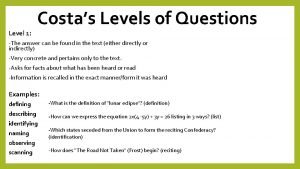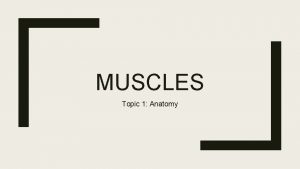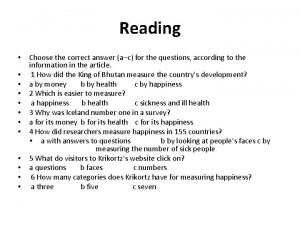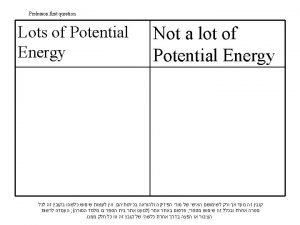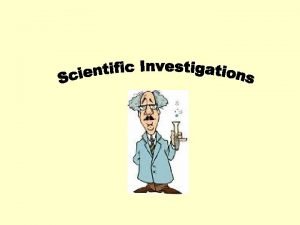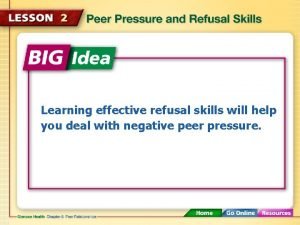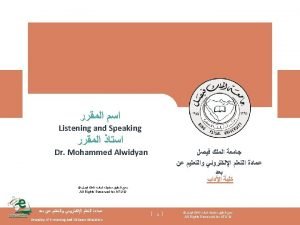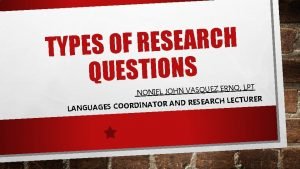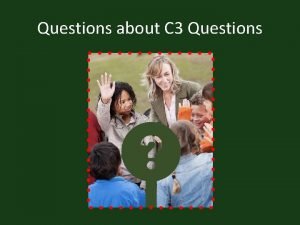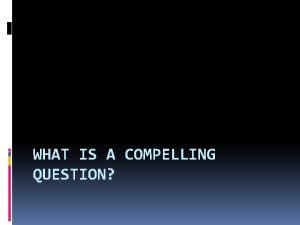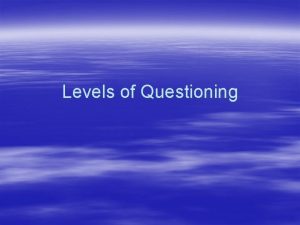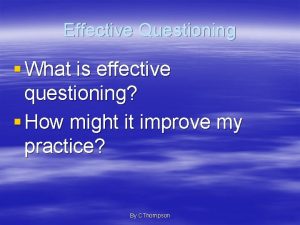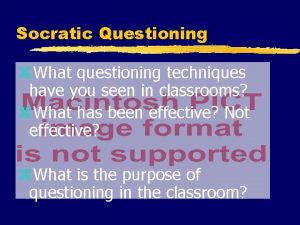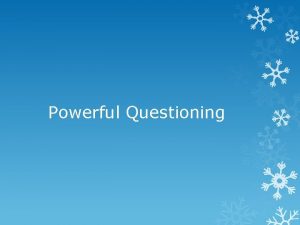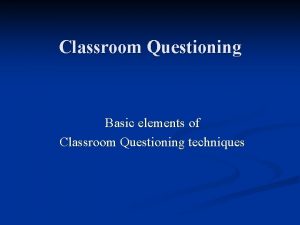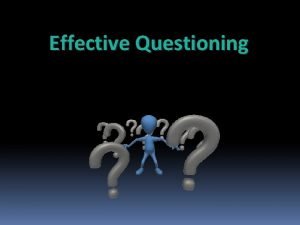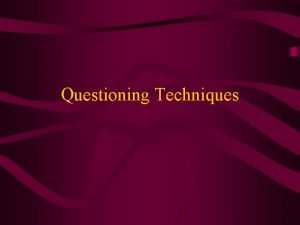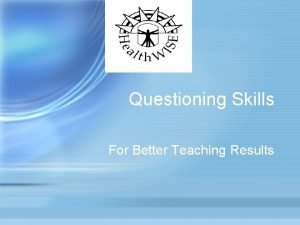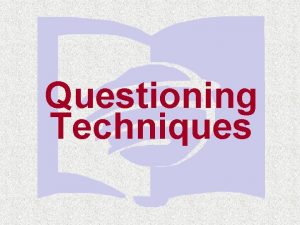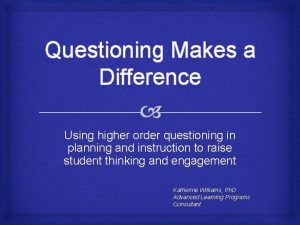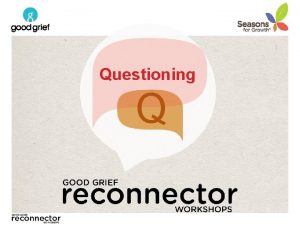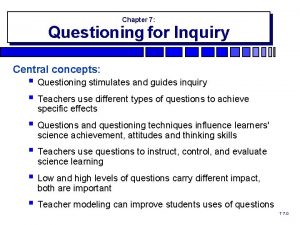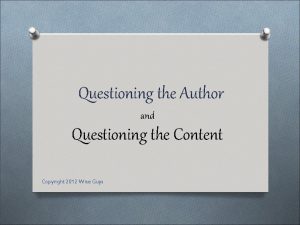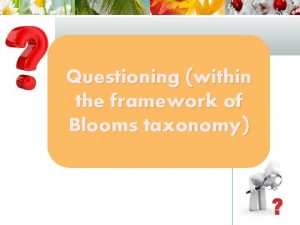Questioning Starter Think of a question you might

























- Slides: 25

Questioning

Starter Think of a question you might have used in the past week in your classroom – write it on the handout sheets

Questioning A critical element in outstanding T&L Think of a question you have used in the past week in your classroom Share it with the group

Training Outcomes 1. Understand that high quality questioning promotes the highest level of learning and therefore progress 2. Self-evaluate the range of questions you ask 3. Self-evaluate the way you choose who answers questions 4. Begin to plan of how to use todays strategies in daily practice

The Big Picture CH intro Types of questioning (5 mins) – CH Dylan Williams Examples of how to use questioning to really push deep learning CH/GH Deciding who to ask – hands up / random selection / whiteboards / Traffic lights (5 mins) – GH Plenary and feedback

Types of questioning……. . Are you looking forward to half term? Do you know the Lord’s Prayer? So how much is 3 X 4 twelve, right? Why didn’t you complete your homework? We really should be getting started now, shouldn’t we? As you envision that you had just lost everything in Hurricane Katrina…What personal learning's or insights will you carry forward to future situations

Exert from our Lesson Obs proforma

G 2 O book extract

Dylan William and questioning http: //www. fromgoodtooutstanding. com/2012/05/ofs ted-2012 -questioning-to-promote-learning

Types of questions explained Are you looking forward to half term? - Verification – you already know the answer! Do you know the Lord’s Prayer? Closed – can be answered ‘yes’, ‘no’ or ‘I can’ So how much is 3 X 4 twelve, right? Rhetorical – the answer is given in the question. Why didn’t you complete your homework? Defensive – cause justification, resistance or self protection. We really should be getting started now, shouldn’t we? Agreement – seeking agreement with your opinion or answer. As you envision that you had just lost everything in Hurricane Katrina…What personal learning's or insights will you carry forward to future situations? Empowering prepositions –Hidden meanings below the surface.

Improved questioning technique “Pose, Pause, Pounce, Bounce” The teacher poses a question, pauses to allow pupils time to think, pounces on any pupil (keeps them on their toes) and then bounces the pupil’s response onto another pupil.

TIGGER Pose Pause Pounce Bounce

Types of question CH relates this to starter exercise

How is your questioning? Do you ever consciously plan / audit your questions? How good are the key questions you plan for each lesson? How well do the questions you ask relate to the learning objectives? Do the questions you ask challenge thinking? How often do you ask further questions that really probe understanding? How many questions do you ask to which you don’t know the answer? How often do the learners ask the questions? How often do you ask the learners to generate probing questions? How do the questions you ask promote learning?

Choosing who to ask 4 ideas 1. Random name generator 2. Sticks (or similar) 3. Numbers on the desks 4. Old School

School Policy? NO HANDS UP! ?



Plenary (CH) Recall your question from the starter earlier… In light of what you know now, rewrite your question. How has it changed? How will your questioning change?

Quality questions How do questions promote learning? Good questions stimulate thinking, and often generate more questions to clarify understanding. Good questions generate informative responses often revealing not only misconceptions and misunderstanding, but understanding and experience beyond that expected. Good questions encourage learners to make links. Good questions push learners to the limit of their understanding. Good questions from pupils push teachers to the limits of their understanding too, and challenge them to find better ways of explaining. Good questions offer opportunities for learners to hear others’ answers to questions, it helps them to reflect on their own understanding.

Unproductive questions Questioning can fail because: questioning techniques are inappropriate for the material. there may be an unconscious gender bias. there may be an unconscious bias towards most able or more demanding students don’t have enough thinking time. (1 second average) learners don’t have any idea as to whether they are the only ones to get it wrong/right. learners fear being seen by their peers to be wrong. questions are too difficult. questions are too easy.

Successful AFL This is NOT a mechanism that is expected to be seen…. IT is an educational ethos.

Some questions for you! Do I ask the best questions? Do I choose who answers questions in the best way? Do I develop the skills of best ways to question with my pupils?

What next? How do we teach / promote students to ask the BEST questions for maximum learning?

 Mukesh ambani signature
Mukesh ambani signature If you think you can you can poem
If you think you can you can poem Costa levels
Costa levels Structure of skeletal muscle
Structure of skeletal muscle Why according to robin and jay are people funny
Why according to robin and jay are people funny Think family ni
Think family ni So you think you can argue
So you think you can argue Choose the correct answers a c
Choose the correct answers a c So you think you can argue
So you think you can argue Do you know about minecraft
Do you know about minecraft Words that come to mind when you think of family
Words that come to mind when you think of family You have more potential than you think
You have more potential than you think What do you think of when you hear the word science?
What do you think of when you hear the word science? What do you think of when you hear
What do you think of when you hear You can argue
You can argue That you may know him
That you may know him Refusal skills and be assertive
Refusal skills and be assertive Name that
Name that Question words present simple
Question words present simple Nudging probe questions
Nudging probe questions Contoh open-ended question adalah
Contoh open-ended question adalah Factor relating question example
Factor relating question example Change direct questions into indirect questions
Change direct questions into indirect questions Compelling question
Compelling question Examples of compelling questions
Examples of compelling questions Questioning and discussion techniques
Questioning and discussion techniques


